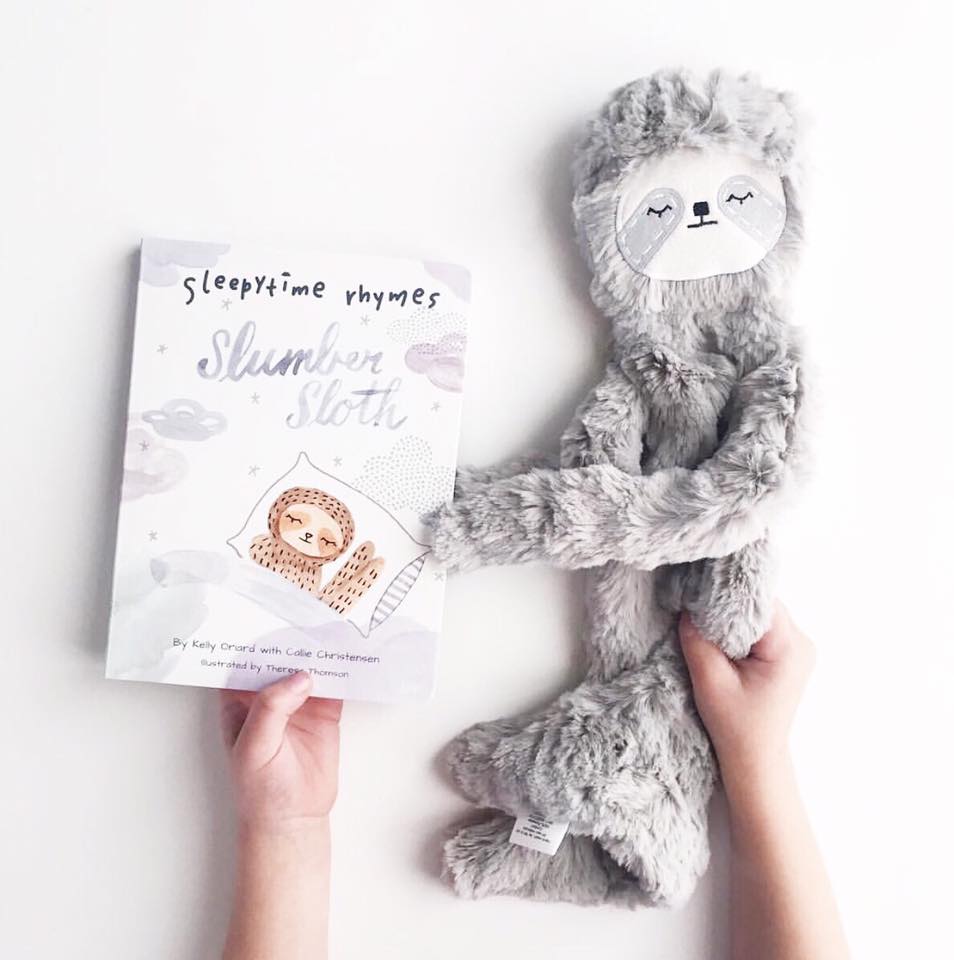By Troy Brynelson
The Columbian, Vancouver, Wash.
WWR Article Summary (tl;dr) With millennials becoming parents, The founders of “Slumberkins” believed there was room for stuffed animals that were quirkier than the usual barnyard animals for kids. Since both Callie Christensen and Kelly Oriard are educators, they also bundled the dolls with books teaching early lessons about self-esteem, cooperation or relaxation.
The Columbian, Vancouver, Wash.
A bid for $175,000 in investment in Slumberkins was turned down by the sharks of ABC’s business pitch reality show “Shark Tank.”
But that won’t stop Callie Christensen and Kelly Oriard, the two founders of the Vancouver maker of lanky, plush children’s dolls.
A 10-minute segment that aired Sunday gave the pair a crash course in scaling in the plush-toy market.
Christensen and Oriard presented plans to increase manufacturing and begin moving into retail shelves, but the show’s eponymous sharks counseled that selling directly to consumers would keep their profits high.
Ultimately, the sharks declined to invest. In an interview with The Columbian this week, Oriard said Slumberkins will now grow in earnest.
“They missed an opportunity,” said Oriard, 33. “We’re an educational brand with huge growth potential.”
The journey from their homes to the studios of a prime-time television show took only about 18 months.
Christensen and Oriard, who have known each other for years and both graduated from Prairie High School, decided to create Slumberkins while they were both on maternity leave. Today, they both work as educators.
The hope, Oriard said, was to find something to spend some time on and maybe earn some extra money. With millennials becoming parents, they believed there was room for creatures quirkier than the usual barnyard animals for kids.
“You can find a bear or a bunny, typical creatures that parents are giving to kids,” Christensen, 34, said. “I think the new market of moms are looking for things that are unique and intentional. We designed these products for ourselves, because we’re millennial moms, and for people that are looking for something different.”
They learned to sew, spent about $200 each on material and soon crafted sloths, yetis and Bigfoot dolls with charming underbites. They come in muted colors meant to be soothing, and use soft fabric.
Since both Christensen and Oriard are educators, they also bundled the dolls with books teaching early lessons about self-esteem, cooperation or relaxation.
“We both know the power of therapeutic tools,” Christensen said. “We think our products, because we’re both moms, are a kind of resource parents can use with their kids at home.”
Sales picked up quickly, they said. They garnered a social media following and sold well on platforms such as Etsy.
They cost between $44 and $52.
Today, the company is headquartered near Esther Short Park and has a staff of seven. They are on track to make a little more than $500,000 in sales this year. The co-founders said they recently struck a deal with Danu Corp. to take on some manufacturing and lower costs.
It was that price tag that soured some of the sharks on the investment Sunday. Plush dolls that sell well at stores are often much cheaper than $40, said entrepreneur Kevin O’Leary.
Oriard said that since the experience — the segment was filmed in September — they have decided against charging into the retail market unless they are sure. Toys ‘R’ Us had also just filed for bankruptcy.
“It was like, ‘OK, the retail landscape is completely changing,’ ” she said.
With a growing following, they can continue to sell directly to consumers, which would help factor out the costs of distribution. Plus, Christensen said, their target market can sometimes be too busy to make trips to the store.
“Moms who have kids can’t get out,” she said. “I purchase a lot of things on Amazon or go directly to the brand’s website and purchase directly.”














































































































































































































































































































































































